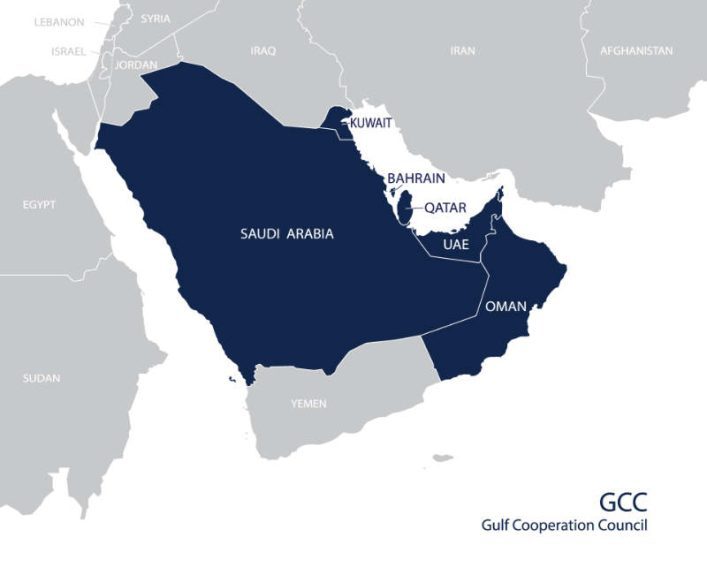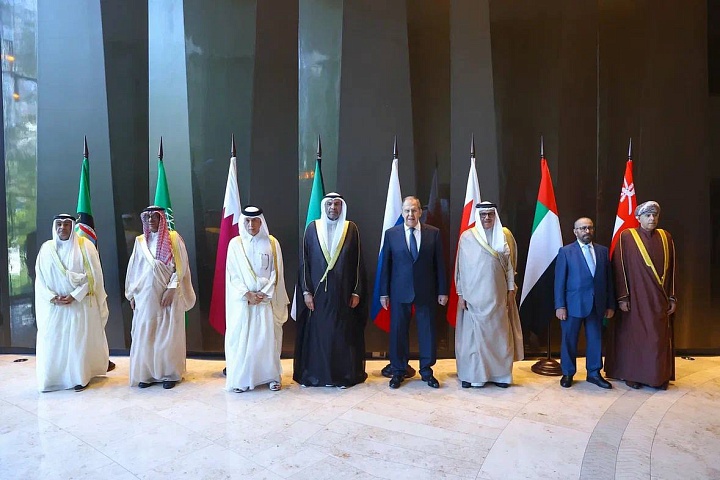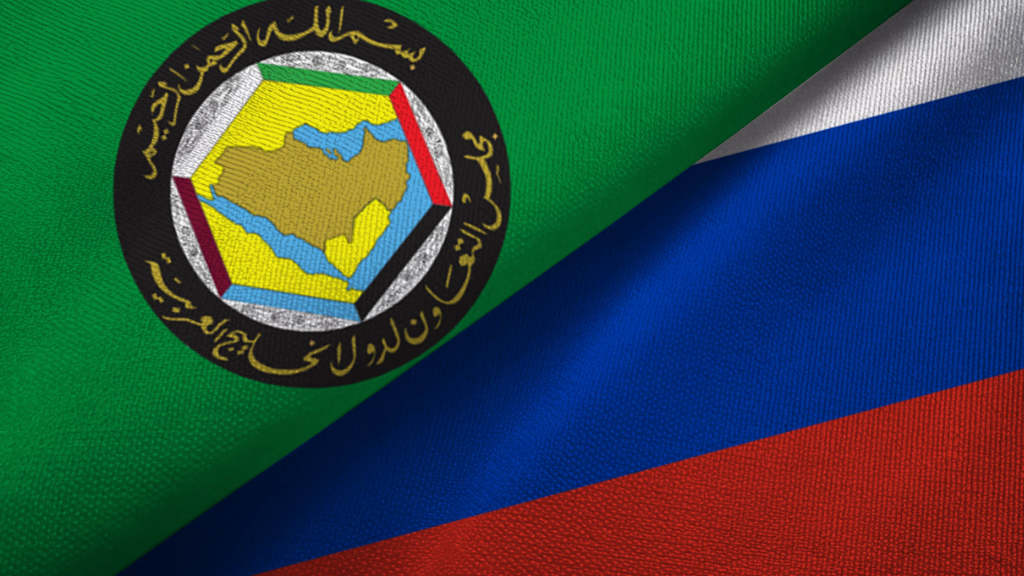The 8th joint annual ministerial meeting of Russia-Gulf Cooperation Council (GCC) Strategic Dialogue was held in Sochi on Thursday (September 11). The meeting was co-chaired by Russian Foreign Minister Sergey Lavrov and Abdullah Al Yahya, the Foreign Minister of Kuwait, who is currently chair of the GCC.
Other participants included Abdullatif Al Zayani, the Foreign Minister of Bahrain, Sultan Al Muraikhi, the Foreign Minister Qatar, Khalifa Al Marar, the Foreign Minister of the United Arab Emirates, Abdulrahman Al Rassi, the Deputy Foreign Minister of Saudi Arabia, and Khalifa Al Harthy, the Undersecretary of Foreign Ministry of Oman, in addition to Jassim Al Budaiwi, the GCC Secretary General.
The Gulf Cooperation Council was formed in 1981 and is a regional, intergovernmental, political, and economic union and military alliance comprising Bahrain, Kuwait, Oman, Qatar, Saudi Arabia, and the United Arab Emirates. The council’s main headquarters are in Riyadh, Saudi Arabia. The GCC possesses about 30% of the world’s total oil reserves, with about 70% of its current annual production going to Asia (and 20% of that to China alone, with a rapidly growing India close behind). Lavrov discussed Russian involvement in the GCC energy industry; it has multiple investments in the region and is looking for more.

Lavrov stated that over its 14 years of existence, the Russia-GCC Strategic Dialogue has established itself as an effective and sought-after facility for exchanging views on key regional and global issues, as well as important matters of trade, economic, cultural and humanitarian cooperation. He said that strengthening Russia’s partnership with the member countries of the GCC is among Russia’s foreign policy top priorities. The Eurasian Economic Union (EAEU) has also expressed similar views and is looking to have discussions concerning a potential Free Trade Agreement.
He highlighted our country’s multifaceted and privileged dynamic relations with the GCC countries, marked by steady and high-paced dynamics of contacts at the highest levels, which have been achieved from a regular trust-based dialogue between President Vladimir Putin and the GCC countries leaders. Lavrov said that Russia was satisfied with the steady growth of Russia-GCC trade and investment, saying that trade between Russia and the GCC member states had increased more than sevenfold from 2021 to 2024.
Russia-GCC 2024 Trade Statistics
| Country | Volume (US$) |
| Bahrain | 10 million |
| Kuwait | 1.5 billion |
| Oman | 346 million |
| Qatar | 91 million |
| Saudi Arabia | 3.8 billion |
| UAE | 9.5 billion |
| Total | 15.244 billion |
A substantive discussion of the state of affairs in the Middle East and North Africa, including the situation in the Gulf, was held. The participants emphasised the importance of stepping up joint efforts in order to strengthen stability and security, using dialogue mechanisms to resolve disputes and to overcome crises by political and diplomatic means in compliance with international law.
The participants placed great emphasis on the situation in the Palestinian-Israeli conflict zone, underscored the importance of bringing an early ceasefire in the Gaza Strip, releasing all hostages and detainees, and restoring safe and unfettered humanitarian access. They endorsed a central two-state principle providing for the creation of an independent Palestinian state.
The Israeli strikes on Doha, Qatar, on September 9 were also discussed. The participants adopted a joint statement condemning this act of aggression as a gross violation of international law and the UN Charter, and an unacceptable encroachment on the sovereignty and territorial integrity of Qatar.
They also reviewed in detail the situation in Sudan, Yemen, Syria, and Libya and agreed to maintain consolidated efforts to develop political solutions to existing issues and disagreements based on relevant UN Security Council resolutions with full respect for the unity, sovereignty, independence, and the territorial integrity of these countries.
Russia and the GCC member states agreed to focus on strengthening multifaceted and mutually beneficial business cooperation, including in the manufacturing industry, energy, transport, and agriculture, as well as culture, education, and tourism.
They agreed to hold the ninth Russia-GCC Strategic Dialogue meeting in 2026 in one of the GCC member countries.

The 2025 Russia-GCC Strategic Dialogue participants
Russia’s participation in the GCC-Asia oil trade has become increasingly significant. Western sanctions on Russian energy products have led to an exodus of oil and commodity traders from London and Geneva to Dubai, which maintains dealings with Russian companies. A new network of shared interests encompassing Dubai, Riyadh, Mumbai, Singapore, Hong Kong, Shanghai, and Moscow has subsequently established itself. But perhaps more significant than the energy sector (not all GCC members have significant reserves), the region is also fast becoming a transit gateway between Russia and South Asia.
This has meant that the GCC is experiencing a connectivity boom, with significant development projects including rail, aviation and logistics projects all underway as well as agricultural developments.
There were also discussions concerning replacing the US dollar as the trading currency for global oil transactions and the possibility of a Free Trade Agreement between the GCC and the Eurasian Economic Union. Five of the GCC members (the exception is Oman) are also partners to the Shanghai Cooperation Organisation.
Further Reading

 Русский
Русский














